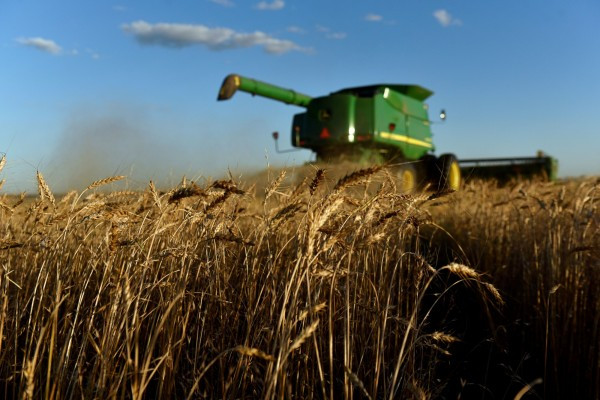A farmer known only as Chen in Henan province, China, stands amidst rows of wheat damaged by weeks of relentless rain, with the oversaturated crops requiring days to dry before harvesting can begin.
The continual downpours have triggered premature sprouting in the wheat kernels, resulting in lower quality grain unfit for making noodles or bread. Consequently, a significant portion of the harvest might end up as less profitable animal feed or even be abandoned altogether.
"All this wheat has sprouted," Chen, who farms approximately two acres of wheat annually, lamented to Reuters as he held a handful of kernels. His fields lie some 40 kilometers (25 miles) north of Zhumadian town.
Henan, often referred to as China's granary, accounts for about a third of the country's wheat production. The persistent rains could potentially affect around 30 million metric tons out of an anticipated total yield of 137 million metric tons. This could potentially lead to increased grain imports by China, the world's largest wheat consumer.
An unnamed harvester driver indicated that approximately a third of the wheat in southern Henan has sprouted prematurely. Rain-induced damage has also been reported in neighboring provinces such as Anhui, Shanxi, and Shandong, potentially amplifying the demand for imported grain.
Darin Friedrichs, co-founder of Shanghai-based Sitonia Consulting, said, "If there is damage to the crop... then it's likely that China will need to increase its imports next year. So obviously that would have an impact on global prices and an impact on global markets." Despite this, Friedrichs believes that China's extensive grain reserves will cushion any food price spikes.
Increased imports coincide with declining yields in major wheat-producing regions, such as Australia, due to the El Nino weather pattern and the ongoing conflict in Ukraine impacting its grain exports.
Farmers like Chen will bear the brunt of this agricultural crisis, seeing their earnings take a significant hit. China's Agriculture Minister, Tang Renjian, during his visit to the affected areas, called for "extraordinary measures" to salvage the harvest, as stated in a ministry announcement.
Furthermore, the Henan government is pressuring insurance providers to settle early sprouting damage claims promptly. They have also directed state grain buyers to purchase low-quality wheat at prices above market rate.
One grain dealer based in Xiping, Wang, has been buying sprouted wheat at around 75% of the market price for food-grade wheat. However, the price could drop further for waterlogged wheat yet to be harvested unless it dries quickly.
Harvesting progress in Henan is lagging, with only 75% of the crop harvested by Tuesday, compared to 90% at the same time last year. Farmers are resorting to methods like trench digging and water pumping in an effort to salvage their crops.
"This is really a disaster," said Chen, anticipating at least a four to five day wait before harvesting can resume.






